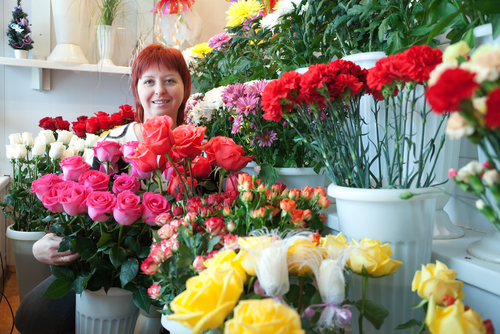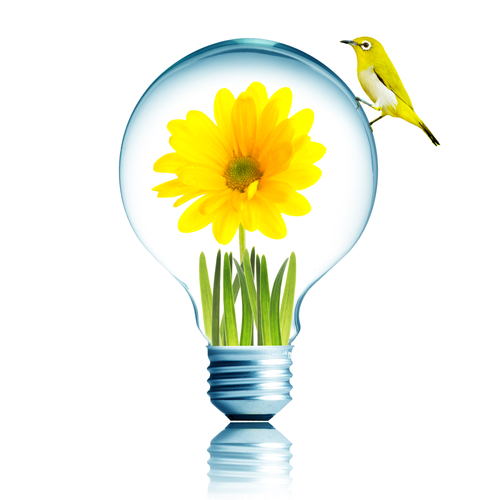
Aside from Christmas and Chanukah, which yields the freshest cut flowers and plants for all floral outlets in the United States, Mother’s Day, Valentine’s Day and Easter/Passover are the top holidays where people buy and indulge in beautiful arrangements for others or themselves. It is very important to know that the quality (not just how colorful and fragrant the floral arrangements are) of the flowers, how they are grown and treated prior to selling, is very important to the health of the people who receive the flowers (be it yourself, or for the people you care for).
Most flowers that are purchased today come from places around the equator where they can be grown year-round and then, are shipped all over the world. Worker's rights and chemical restrictions in these near-equator countries aren't always consistent with those of the U.S.A. Choosing organic (yes, organic flowers) may be a great consideration going forward, because there is a high correlation between the use of chemical fertilizers and pesticides to the environmental and community health risks caused by conventional flower and plants growing.
Just like in conventional farming for produce and other food products, shipping plants and flowers across the globe is not good for the environment. One of the benefits to organic farming is about being proactive in creating the best environment rather than being reactive with chemicals. Not only that, pesticides are known to contribute to the weakened immune system, allergies, ADHD, and a host of other disorders. Pesticides and other toxic chemicals used on flowers have been found to have a very negative affect on the health of farmworkers and florists. For example, without the proper protection, the toxic chemicals can spread onto the clothes and into the bodies of farm workers which in turn can increase exposure to their children. Florists who handle non-organic flowers have been known to develop dermatitis on their hands.

Dr. Mercola published a great article on how conventional farming of plants and flowers is having a holocaust effect for the bee population around the world and to our human health. In his article, he states that the "Organic Consumers Association has compiled a list of research published prior to 2006, detailing the potential hazards associated with pesticide exposure from cut flowers, which includes an increased cancer risk. For example:
A 2003 study published in Mutation Research found that more than 71 percent of cut flower growers around the world show genetic damage.
Research published in the Environmental and Molecular Mutagenesis journal found that DNA adducts, indicative of early-stage cancer, was present in 60 percent of longtime workers in the floriculturist industry.
In 1999, a study published in the Journal of Occupational and Environmental Medicine concluded that "among male floriculturist pesticide applicators, prostate cancer and testicular cancer are significantly elevated. Among females applicators, cervical cancer incidence is significantly increased."
I never really considered where my flowers came from when buying them for myself or others, but now I do. The statistics are alarming. Look for USDA or other organic labels and stickers on the flower and plant signs and packaging or ask the florist where you are buying your arrangements from whether or not they know of where the flowers are from and how they are grown, shipped and treated.
Organic gardening focuses on improving soil health and adds carbon into the soil that promotes healthy plants through the natural use of composted materials. In fact, organic flowers have a better smell free from chemical overtones often found in conventionally grown plants. Some varieties of flowers such as roses or carnations often have little or no fragrance when grown using conventional methods, yet organic flowers have an abundance of fragrance and sweetness that cannot be duplicated. Organic flowers often exhibit truer color and texture than conventionally raised flowers. Organic farming methods incorporated in growing such flowers reduce soil pollution and help to enrich the soil naturally.

⚘ Reduce the usage of toxic chemicals that can end up in our waters, soils, air, clothes and bodies.
⚘ Grow your own organic plants and flowers from untreated seeds.
⚘ Purchase fresh cut flowers from organic and fair trade companies.
The sale of natural flowers supports the local communities who are financially weak and the trend will increase the awareness to the need for more organic farming.
Organic flowers have a higher beneficial frequency and are believed to be more long lasting and fragrant.
Organic flowers are of great importance to pollinators. The honey produced from these flowers is safe and effective in treating several diseases and they add to the aesthetic and holistic approach of a garden.
Organic farming helps keep rural communities healthy. The USDA reported that in 1997, half of U.S. farm production came from only 2% of farms. Organic agriculture can be a lifeline for small farms because it offers an alternative market where sellers can command fair prices for crops.
Sources: OrganicBoquet.com, Dr.Mercola.com, GardenForever.com
